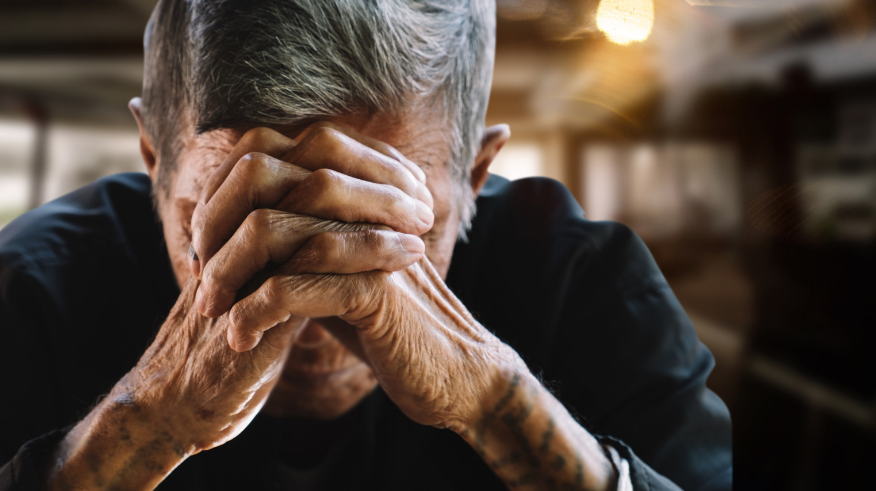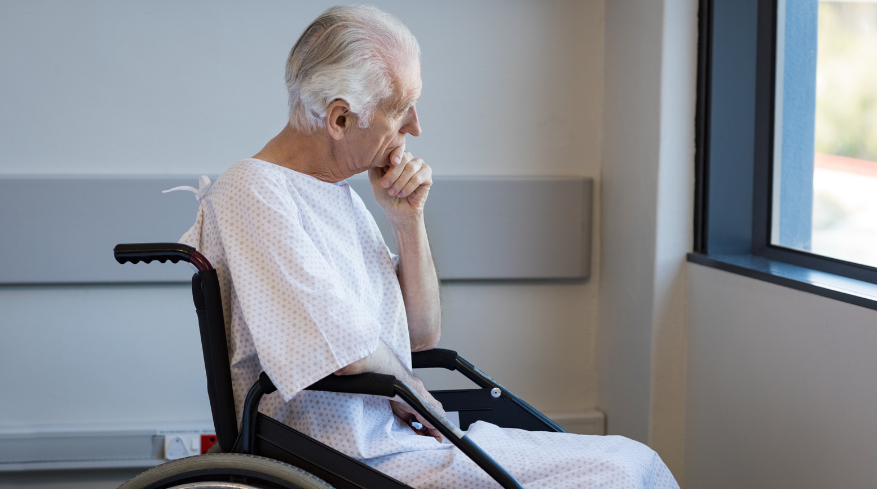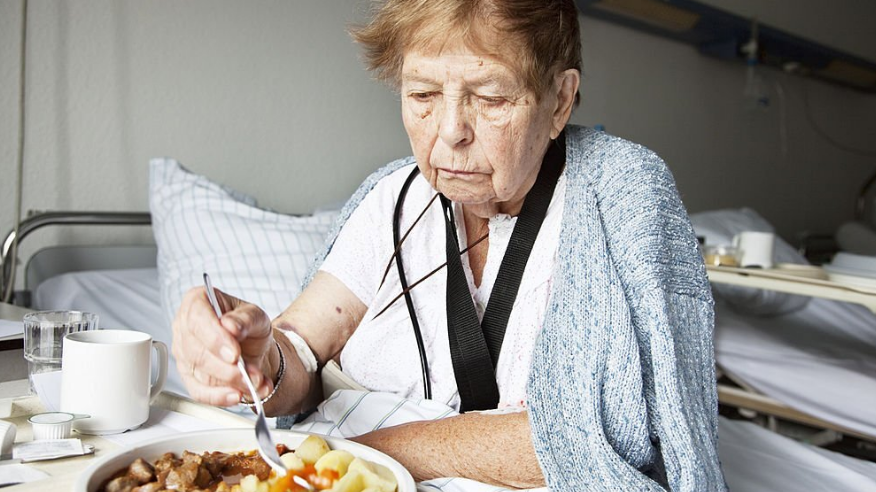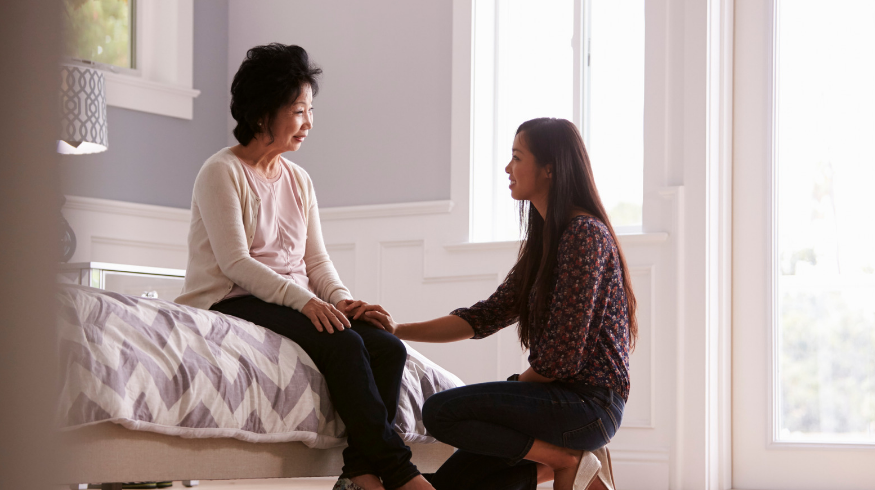Depression in Older Adults: How to Spot It and Ways To Help

As we age, the risk of experiencing depression increases. Depression is one of the most prevalent mental health issues in older adults and can significantly affect their lives. However, some older adults may not recognize their depression and fail to seek treatment.
It is important to identify older adults at risk of depression and intervene early on so they can get the treatment they need and avoid the negative effects that come with it.
Feeling down or “blue” from time to time is a normal part of life, but depression is different. It happens to everyone, whether it’s being diagnosed with a physical illness or grieving over an aging parent. Even the happiest, most carefree person occasionally feels blue and has bad days, but this is the exception rather than the rule.
With this in mind, let’s take a look at what you need to know to identify depression in older adults and how to connect them with treatment.
What Depression In Older Adults Looks Like?
Depression is not a normal part of aging. It is a symptom of a larger problem, most commonly depression or another mental illness. It is a serious issue that impacts the quality of life and emotional stability, requiring immediate attention.
Regardless of age, depression can be debilitating, and it can have serious emotional and social consequences. Depression can cause a person to lose interest in physical activities that were once important to them. An individual with chronic depression is experiencing severe physical symptoms like weight loss or insomnia, has difficulty maintaining interpersonal relationships, and cannot function at work.
In most cases, depression is a chronic illness that comes on gradually, causing severe distress in the person suffering from it. However, it is essential to identify depression as early as possible to receive treatment and work through the issues causing it.
What are the Risk Factors of Depression in Older Adults?

There is a high prevalence of depression among older adults. Depression can occur at any point in adulthood, whether or not a person has experienced significant life events.
On the other hand, having a history of depression or other mental illnesses will increase a person’s risk of experiencing depression as they age. It leads to a vicious cycle — depression can be treated if it is detected early and treated early.
When it comes to older adults, several factors can increase the risk of depression. These include:
1) Feelings of Worthlessness
A common cause of depression in older adults is a feeling that they are no longer useful or that they’re a burden to their families. This can happen when they face the loss of physical or mental independence.
The more dependent you are on others for assistance, the more feelings of worthlessness you may have. This can happen with decreased mobility, loss of independence and abilities, and when there is a decrease in social support.
2) Financial Issues
If money is a big problem, it can lead to depression in older adults. Older adults who struggle financially and cannot pay their bills or make ends meet can develop depression over money issues.
This is especially true if they deal with mental health issues requiring more attention and treatment. Furthermore, if they can no longer work at full capacity because of physical or mental limitations, this can cause feelings of depression as well.
3) Illness and Physical Changes

Changes in health can lead to depression in older adults. When a person’s physical health is affected, they may start feeling frustrated by the changes and helpless to do anything about it.
This can occur when a change in health makes it difficult to walk or move around, like arthritis, Parkinson’s disease, or a stroke. Physical illness can also lead to feelings of sadness and loss of interest in things that once brought pleasure.
Furthermore, the way the body responds to drugs in these conditions sometimes triggers depression. They are at high risk of hypertension, heart disease, stroke, and diabetes.
4) Life Changes
Life changes are one of the biggest stressors for older adults. This can have a negative impact on their well-being, which can subsequently lead to depression.
These are some of the major life changes:
- RETIREMENT – older adults who retire and lose their employment are more likely to suffer from depression.
- GRIEF – grieving over losing a spouse or other loved one may lead to depression.
- NEW LIVING ARRANGEMENTS – the transition to a new living arrangement can cause stress, anxiety, and depression.
- DISABILITY – experiencing a disability or inability to do things you once enjoyed can make you feel depressed.
- ACCIDENTS – being injured or having an accident can cause feelings of depression.
- ACCESS TO FINANCIAL ASSISTANCE – when you don’t have financial stability, it is difficult to cope with everyday life.
5) Mental Disorder
Some mental disorders, such as dementia and Alzheimer’s disease, may increase an older adult’s risk of depression. Depression may result from the disease’s direct effects on brain function or changes in social roles and relationships.
This disorder can lead to mood changes and memory problems, making it harder to cope.
How Can You Identify Depression in Older Adults?

While it is not always easy to identify depression in older adults, there are several signs that you can look out for:
• Changes in Eating Habits:
A person suddenly starts eating less or more than usual could signify depression. They may also experience a loss of appetite, and the desire to eat certain foods may disappear.
• Frequent Feelings of Guilt, Irritability, and Sadness:
Due to their decreased capacity to handle everyday life, older adults suffering from depression may experience these emotions more frequently.
• Changes in Sleep Patterns:
Older adults who experience depression will often stop sleeping and may experience bouts of insomnia or hypersomnia.
• Changes in Personality:
Depressed people may become angry, isolated, and withdrawn from others. They might also talk about suicide or make self-destructive statements.
• Decreased Ability to Think Clearly:
Older adults may be unable to think as clearly and rationally as they used to and may not be able to make important decisions.
Ways to Help an Older Adult With Depression
As a caregiver for older adults, finding ways to help them deal with the symptoms of depression can be challenging. It is essential to remember that you must respect their privacy when they need space and time away from the things that are stressing them out.
However, there are several things you can do to maintain a sense of balance in their lives, so they don’t have room to feel overwhelmed:
1. Give Them Space to Talk About Their Feelings

Your first step should be to give the person space to talk about their feelings without judgment or criticism. With that in mind, avoid telling them what they should or shouldn’t be feeling. This will make them feel judged, which can lead to more depression.
Allow them to express their emotions without telling them what they should feel. This will help them feel like they are being listened to, which can help them cope better. Encourage them to talk about their struggles or emotional states and let them know they are not alone.
2. Encourage Physical Activity
Stimulate an older adult’s physical needs by encouraging them to be physically active if they have time. This can help to improve their mood and anxiety levels.
Introduce them to new hobbies and activities that will keep their mind busy and allow them to forget about their depression. This way, they will be less likely to feel depressed and focus on the things that are stressing them out.
On the other hand, exercises for the elderly can also be a good stress reliever, so encourage them to work out if they have time. Fit them into their daily routine to ensure they get enough of the right drill.
3. Help Them Build a Support System
To cope with depression, the person must have a support system. Having someone, they can confide in and talk to about their depression can be very beneficial. This can help them work through the things that are making them feel sad or angry.
When they feel comfortable talking to you about their feelings and worries, offer your advice and support. This way, you can be a person who will listen to them and guide them when they need it most.
4. Promote Social Interaction

Encourage older adults to talk to others they know or even make new friends. This way, they can share their experiences and become part of a community of people who will support them when they feel depressed.
Schedule regular social activities and events where they can meet with people and friends. This will help keep their minds busy and give them a break from the things stressing them out.
5. Seek Help From Health Care Professionals
Reaching out to a medical professional can be very beneficial in treating depression. They can help treat the root causes of depression and any physical illnesses they may have.
Counseling or therapy with a physician will help them learn how to manage depression symptoms. In many cases, medication can also be prescribed to help to slow down the symptoms of depression.
If your older adult is struggling with depression, you should choose a professional who has experience dealing with the issue.
Final Thoughts
Although depression is a serious issue, it can be treated or managed. Knowing the conditions of depression can also help you understand how to treat it best. If you notice any signs of your loved one showing signs of depression, a simple conversation about their feelings can bring them back to reality.
Do you or someone you love struggle with depression? Or are you looking for senior care? Well, Serenity Senior Care is a great place you need to visit. Having an in-home care service will give you and your loved one the loving attention and care that they need.
Our caregivers are trained, skilled, veteran caregivers who know how to provide and give quality services. We have a wide range of care services that will meet your needs.
Feel free to contact us today for more information about our in-home senior care services. We are ready to serve your needs and will give you the best that we have to offer.


